Have you ever wondered how to become a translation project manager? Find out a number of ways to start your career!
Project management is one of the main career paths within the translation industry, with the two other most well-known roles being those of the translator and the interpreter.
The position has become increasingly common in the industry, but remains vastly unknown to the general public. So before explaining how to become a translation Project Manager (PM), it will be worth explaining what they actually do.
In translation, a project manager is a professional who handles projects of different kinds, such as translation, interpreting, proofreading, subtitling, post editing, and so forth. While it can also be done on a freelance basis, project managers are, in most cases, directly employed by a translation agency.
PMs don’t carry out any sort translation or interpreting. What they do is establish a link between clients (who contact the agency that employs the PM) and linguists (typically freelancers, who will take care of the actual translation, interpreting, etc.)
Each translation agency will have its own workflow, so there isn’t a universal rule as to how projects are managed. However, generally speaking, the PM is responsible for:
- Taking the content that the client wants to translate, analysing it and calculating the overall costs of the project.
- If the client is happy with the estimated costs, the PM assigns the project to a linguist. Translation projects are assigned to freelance translators, interpreting to freelancer interpreters, and so forth.
- While projects are ongoing, the PM assists the linguists with any questions they may have (it often involves reverting some of the queries to the client and waiting for a reply.)
- Once the project or assignment has been completed by the linguists, the PM prepares the delivery, signs it off and handles all the necessary communication.
- Over time, the PM is responsible for keeping a good professional relationship both with customers and with linguists.
Note: If you’re curious to know more about how much money PMs make, please also check the post below:
Continue Reading: Translation Project Manager Salary
This is a common profession for recent graduates who are still trying to find their feet in the translation industry. It also guarantees a more stable income when compared to freelancing.
Some eventually transition to freelance translation or interpretation, while others develop their careers within the Project Management side of things (which normally means being promoted to higher roles within the agency they work for.)
How hard is the job of a translation project manager?
Before jumping into the main content, there’s a myth I would like to bust.
Some people are led to believe, just because PMs aren’t actually translating anything, that they somehow play a minor role in the translation world. How hard can the job be, right?
In reality, the project manager’s job is extremely demanding and shouldn’t be looked down on. Here are the main reasons:
- It is stressful. In many respects, more stressful than translating or interpreting.
- The level of responsibility is immense. PMs are the ones on the spotlight when things go wrong.
- The typical work volume is tremendous. It’s not just a matter of sending content to linguists: there’s a thousand things to be done in the background that clients and linguists don’t realise.
- There’s less room for decision-making. Unlike freelance translators and interpreters, PMs are employees and have to adhere to their agency’s workflow, opening hours, schedules, policies, rules, etc.
- There’s also way less flexibility, including in terms of lifestyle. You are likely to be bound to an office, so you may need to live relatively close to it (being able to commute is crucial.) The vast majority of UK-based agencies are located in cities such as London, Birmingham or Manchester. There’s only a tiny number of agencies offering full time remote PM jobs at the time of writing (although the events of 2020 may change that.)
What’s good about being a translation project manager?
But there are also great things about working as a PM. In fact, starting out as a PM is something I’d strongly recommend to young, newly-graduated linguists who don’t have much (or any) professional experience yet.
It can be a suitable career also for those who are more risk-averse and don’t want to rely on the ‘feast and famine‘ lifestyle many freelancers endure.
Becoming a team leader, senior project manager or line manager are some of the positions you may eventually be promoted to.
To sum up, here are some of the good reasons to work as a PM:
- It’s a more secure way to join the translation industry. You’ll be on a salary, thus avoiding the instability that comes with freelancing.
- You’ll benefit from worker protection laws that freelancers don’t necessarily enjoy (fully paid holidays, retirement pension set up for you by the company, etc.)
- It gives you a technical advantage over most translators and interpreters. If you later decide to become a freelancer, having worked as a PM will give you an invaluable amount of inside knowledge that will help you become a better translator or interpreter.
- You’ll also develop skills (both hard and soft skills) that you otherwise wouldn’t be able to develop (or at least would take you a long time to learn), such as the use of a CAT tool, perfect communication skills, ISO standards and practices, organisational skills, and so forth.
Now that we’ve taken this out of the way, let’s get down to business. Without further ado, here’s how to become a translation project manager.
This list focuses on the UK market, however I am sure it will be helpful no matter where you are!
Take Stock of Your Skills and Experience
The very first thing you should do is make a list of all your strengths, skills, professional experience and any qualification(s) you may already have.
Ask yourself: what do I have that makes me employable? What assets are there in my professional profile that could potentially make a translation agency pay attention to me? This will be your starting point.

Ideally, you should tick at least some of the following boxes:
- Be fluent in at least two languages (one of which must be English).
- Good writing skills in English.
- Have a background in linguistics, languages or humanities (ideally a university degree, but any sort of formal education in one of these subject will help you here, including college and adult education courses.)
- Have a graduate degree (BA) of some sort. Again, linguistic or translation-related studies would be ideal, but I know for a fact that some agencies are also interested in people with other types of academic education.
- Good IT literacy. At the very least you should know how to work with a computer and be acquainted with MS Office – but the more you know, the better.
- Have some sort of professional experience. Ideally you’d have had some sort of professional contact with the translation industry; if not, having worked in an office (even on a non-related area) is already something; and even if you don’t have that, any work experience where multi-tasking, problem solving and organisational skills are used on a daily basis can work to your advantage.
- Have some way to prove that you’re able to work independently (not only through past work experience, but also through volunteering, apprenticeships, internships, etc.)
- Know how to work with CAT tools (or, at the bare minimum, know what a CAT tool is and the names of the main CAT tools on the market.) Some agencies may even require you to carry out a CAT tool test as part of the recruitment process.
- Be able to display a basic knowledge of the translation industry and how it works (if you read my blog, then I’m sure you’re already doing better than most people 🙂 )
Don’t worry if you don’t have all the above: very few people do at the start of their careers. However, generally speaking, the more you have, the more likely you are to get hired.
Get Qualified
Having a degree in translation studies is not compulsory, but it’s likely to increase your chances of getting hired by a translation agency.

As already mentioned, depending on the agency you may also be considered if you have a degree in other fields of expertise. The important thing here is that you find a way get across the idea that you are serious about entering the translation industry.
Example: In my case, I didn’t have a degree in translation when I got my first job as a project manager: my background was Philosophy (BA). Only at a later point, while still working as a PM, have I decided to do my MA in Translation and Interpreting.
Get Acquainted with a CAT Tool
In addition to being a huge asset for translators who want to increase their productivity levels, CAT tools (or Computer-Assisted Translation) are absolutely essential for project managers. I can safely say that no serious, modern translation agency can survive without the use of CAT tools these days.
For that reason, pretty much every PM will have to work with them at some point. As a consequence, agencies tend to value applicants who have at least some technical knowledge.
These tools are used to create and manage projects (translation, proofreading, post editing, etc.), automate several tasks, calculate repetition discounts, create glossaries, create and develop translation memories, and so forth. They make the standard workflow of an agency more seamless, efficient and productive.
The 2 most widely used CAT tools are SDL Trados and memoQ. Agencies may even specify in their job adverts which one they use, although that’s not always the case.
If you’ve never learned how to use a CAT tool, there’s a number of ways you can start before applying for a PM job:
- Keep an eye on my CAT Tool section, I’ll be posting new tutorials there over time.
- Look for any other existing tutorials on YouTube.
- Download a demo or trial version of the CAT tool you want to learn (e.g., memoQ lets you download a trial version from this page.)
- See if the developer has any free tutorials and/or user manuals available.
- If you have the money to invest, you may also buy training courses and certifications directly from the software developer (e.g., SDL offers many options to learn Trados and become a certified user.) Being certified in a CAT tool will give you a massive advantage over your competitors.
Keep in mind that these are complex pieces of software with a considerable learning curve involved. In other words: be patient with yourself!
They are also quite pricey, hence my suggestion that you start with a trial version.
I’d recommend you to buy memoQ or Trados only if your plan is to become a translator; as a PM, there isn’t much point in making the investment because your employer will let you use their license during office hours.
Search For Job Vacancies
Getting a job as a project manager is highly subject to the current demand. In other words, you need to look for agencies that are currently hiring new PMs.

Some common places to look for translation job vacancies in the UK include:
- Reed.co.uk
- Indeed.co.uk
- Totaljobs.com
- Guardian Jobs
- ABL Recruitment
- Multilingual Vacancies
- Jooble
Note: Regardless of what website you decide to use, you’ll have to filter through the results. ‘Project Manager‘ is a job title that’s used across multiple industries (IT being the most predominant one). What we’re referring to here is translation project management.
Write and Optimise Your CV and Cover Letter
Prepare your CV and cover letter so that you can apply to any existing job vacancies. The key here is to do the following:
- Both your CV and cover letter should be optimised for the type of job you are applying to. In this case, make sure to include all the strengths and professional profile assets you have listed in the first point above.
- Think of your CV and cover letter almost as a marketing campaign. Your goal is to sell yourself to you potential employers. Each strength/asset should be regarded as a selling point. The underlying logic should be ‘here’s another reason for you to hire me‘.
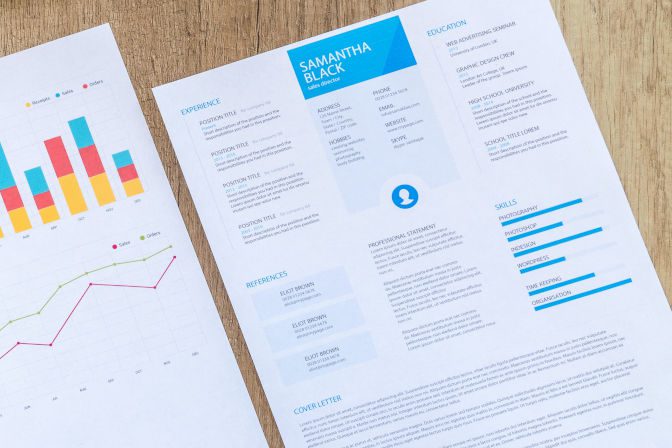
- Optimise your CV not just to the Project Manager position in general, but also to each and every agency you apply to. Read the job advert carefully and check their website; then adjust your CV and cover letter as if you were answering directly to their advert. Under normal circumstance, every application you complete should have a couple of tweaks here and there to match what’s being asked in the advert.
- Example: If the advert lists ‘communication, negotiation and organisation’ as essential skills, state exactly where you have gained, developed and applied them.
- Give your CV and cover letter a personal touch whenever possible. It is okay to use a template as a reference (they are easy to find online), but make sure you adapt it to your circumstances. Recruiters can spot when an applicant hasn’t made the effort, as they receive hundreds of applications with the exact same phrasing every year.
Prepare (and Rehearse) Your Job Interviews
To work as a PM you’ll have to pass a job interview at some point. Getting ready for it is an absolute must: for a recruiter, spotting an unprepared candidate is the easiest thing in the world.
Some of the most important things you should do when getting ready for an interview include:
- Research. Find as much information about the company as you can. Recruiters like when an applicant actively shows interest in the business. Read their website carefully and take note of their core values, mission statement, what services they offer, specific markets they focus on, etc.
- Anticipate. Nobody can know for sure what the interviewer is going to ask, but everyone can take a guess. Some questions are asked in almost in every single job interview, so you should at the very least prepare your answers to those.

- Rehearse. Yes, you read it correctly! Rehearsing your answers in front of a mirror (or while recording yourself with your smartphone) is one of the most underrated job interview preparation hacks. This is particularly important if you are not the most confident talker. This technique will give you a clearer perspective as to what exactly you may be doing wrong and how you can improve.
- Follow the C.A.R. model. CAR (which stands for Context – Action – Result) is a highly successful method (also known as STAR) of answering questions in job interviews. By following this model you will be structuring your answers in accordance to the following points:
- Context: set the context for your answer: what was the situation? what was your position? what where the challenges? (e.g. ‘the client asked whether we could do X, following requirements Y, within time frame Z’)
- Action: explain what you’ve done in response to the situation (e.g. ‘I informed the client we could not meet the requirements within their limited budget for reasons Q and P, but I immediately offered them alternatives A, B and C’)
- Result: explain what (positive) outcomes you managed to obtain as a result of your action (e.g. ‘the client was very pleased with solution B and decided to proceed with that option’)
Take an Internship Position
Most agencies offer internship positions, which may last from 3 to 6 months. This is a common solution both for recent graduates and for people who want to join the translation industry, but come from a different background.
When it comes to internships, quite naturally, applicants face much smaller barriers to entry. That makes them an opportunity to gain some inside knowledge and improve one’s employability profile.
When the internship is over, some agencies end up offering the intern a permanent position (so, effectively, they become full time PMs from that point onward.)

But all that glitters isn’t gold. There are certain things you need to be aware of before accepting an internship position:
- Low Pay: Internships aren’t particularly well paid. In fact, to slash all euphemisms out of the equation, the pay tends to be horrendous. An agency may pay as little as £50/month (yes, you read it well), so make sure you are able to sustain yourself for the duration of the internship without a salary. Also, keep in mind that the real cost here isn’t really the money your are (not) making, but the quality of the training being offered by the agency
- Quality of Training: Internships are not designed equally. There are agencies that offer an excellent level of training, while others offer no valuable training at all. Don’t be afraid to ask the recruiter about the sort of training they actually offer: not only it will show them how committed you are, their answer is likely to tell you whether you’re indeed facing a good opportunity to learn the job.
- Ethical Stance: Just like any business sector, some companies within the translation industry set a very high ethical standard for themselves, while others, well… set the standard of having no ethics at all. As mentioned, a company with good morals will offer their internships as a mean to generate value (they’ll give you the training and, if they see you’ve got potential, they can rip the benefits by hiring you permanently); however, there are also many agencies that just run an internship scheme to get dirt cheap labour for a few months: the intern is just asked to carry out repetitive tasks with zero value in terms of knowledge, making the whole process an amazing deal for the company but a terrible one for the intern.
Continue Reading: Are Translation Internships Worth It?
Again, there are seriously good agencies out there offering fantastic (even if poorly paid) training for interns, but there are also others that are just abusing their position. Knowing this harsh reality in advance is the first step not to end up getting stuck with one of the latter.
If you’ve found this post helpful or think it could be useful to a friend who perhaps is – or is planning to become – a translator or interpreter, please kindly consider buying me a coffee by using the button below:
I put all my heart and soul into the content I produce in order to help my fellow linguists set foot in the industry. Most of what I do is available to everyone for free.
Donating is 100% optional, but greatly appreciated. A short espresso will do! ☕


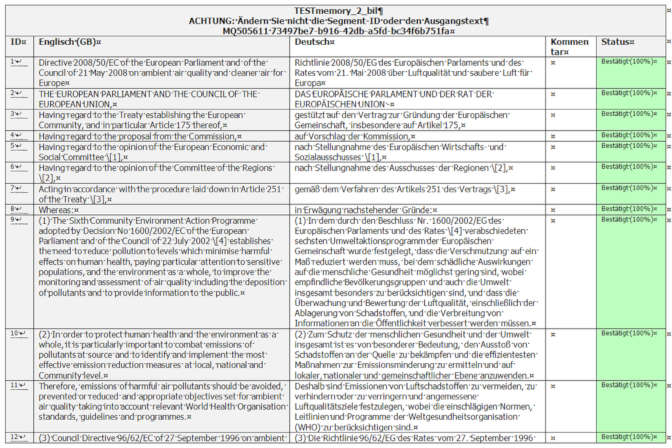




 How to Become an Interpreter (A Step-By-Step Guide)
How to Become an Interpreter (A Step-By-Step Guide)
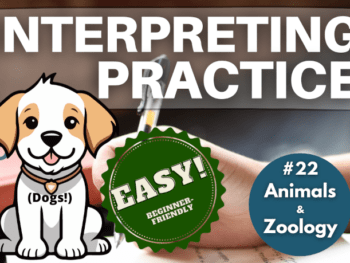
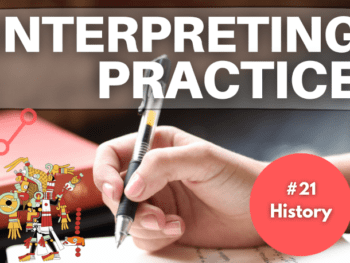
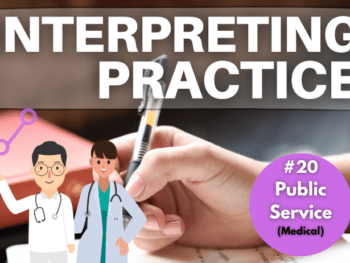
I am a translator. I hired an amazing project manager from hiretranspm.com and he opened my eyes to the beautiful world of project management. Question, Do you need a degree to become a good project manager?
Hi Emmy,
Having a degree in translation or interpreting studies will drastically increase your chances of getting hired by an agency as a PM. That said, in my personal opinion you can be a good project manager without a degree, as most of the skills that you need aren’t even taught by universities at all. It’s practice and experience that make it perfect.